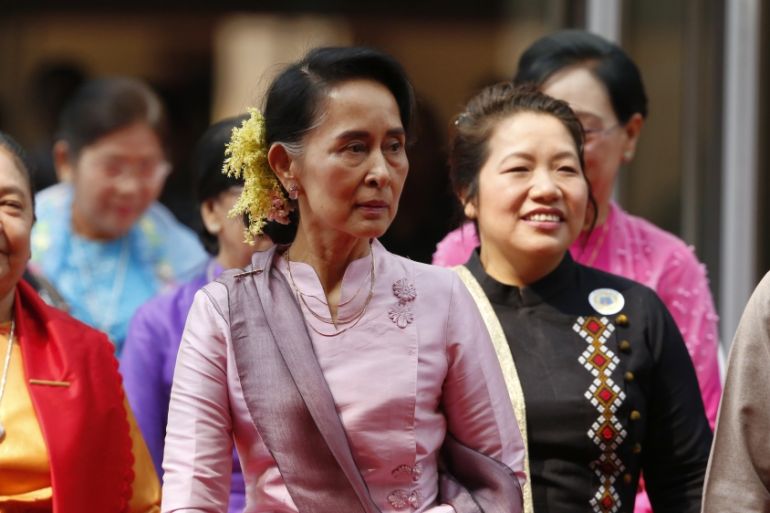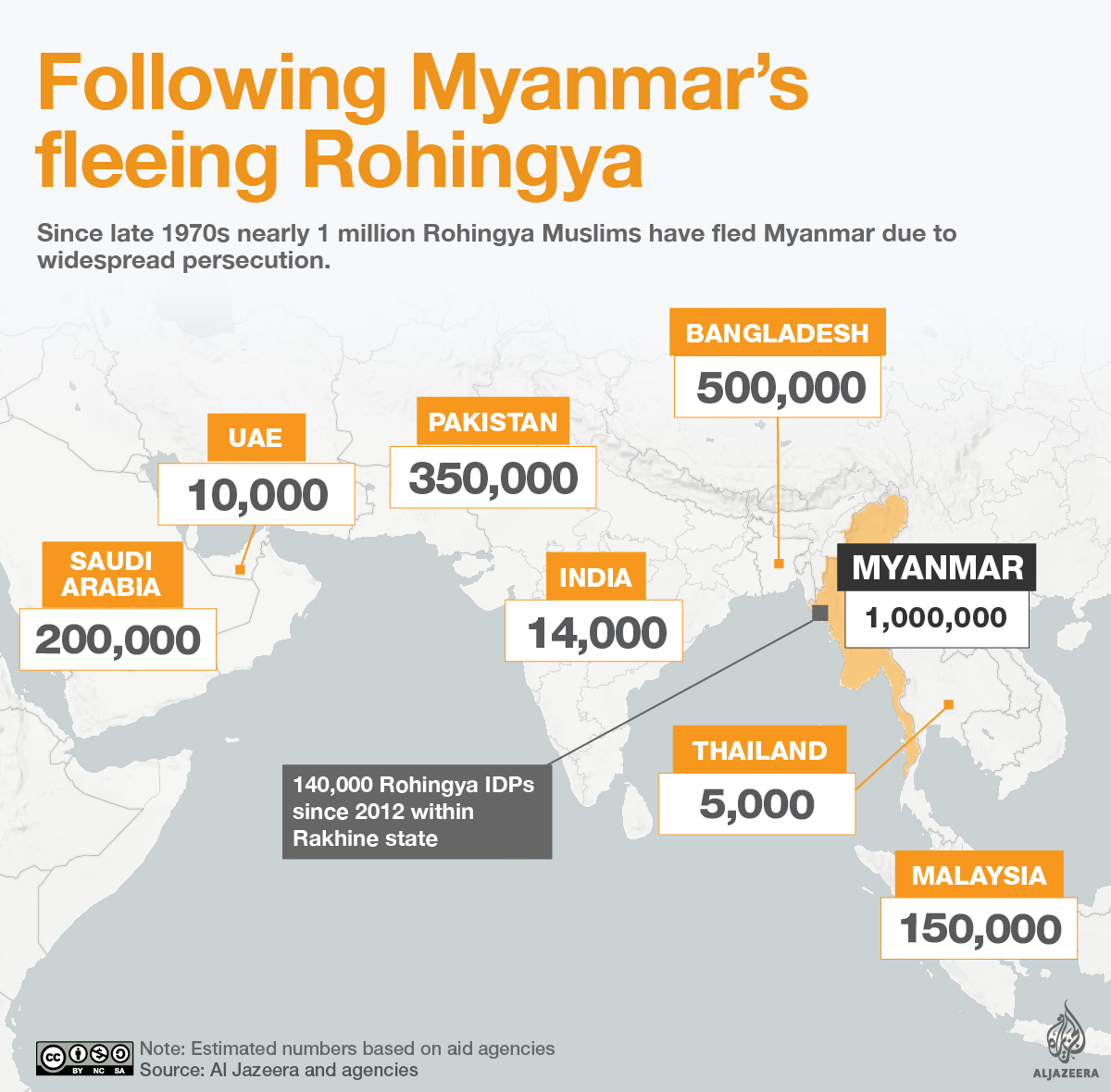Aung San Suu Kyi denies ethnic cleansing of Rohingya
Myanmar leader’s remarks come despite UN and rights groups saying army crackdown may amount to crimes against humanity.

Myanmar leader Aung San Suu Kyi has denied security forces carried out ethnic cleansing of the country’s Rohingya Muslims, despite the UN and human rights groups saying a crackdown by the army may amount to crimes against humanity.
Tens of thousands of people have fled Myanmar’s Rakhine state since the military began a security operation last October in response to what it says was an attack by Rohingya armed men on border posts, in which nine police officers were killed.
Keep reading
list of 4 items‘Can’t give them jobs’: Rwandans grapple with fears over UK asylum plan
‘It feels personal’: Residents fight Melbourne tower block demolition plan
‘Children of the Ganges’ — The boatmen of India’s Varanasi
|
|
A UN report in February said the army’s campaign targeting the Rohingya involved mass killings, gang rapes and the burning down of villages, likely amounting to crimes against humanity and ethnic cleansing.
In neighbouring Bangladesh, where more than 75,000 Rohingya have fled to escape the crackdown, people have recounted grisly accounts of horrendous army abuse, including soldiers allegedly executing an eight-month-old baby while his mother was gang-raped by five security officers.
“What kind of hatred could make a man stab a baby crying out for his mother’s milk,” UN rights chief Zeid Raad al-Hussein said in a statement at the time. “What kind of ‘clearance operation’ is this? What national security goals could possibly be served by this?”
‘Too strong an expression’
Aung San Suu Kyi, a Nobel Laureate whose international star as a rights defender is waning over the treatment of the Rohingya, has not condemned the crackdown, and has not spoken out in defence of the persecuted minority.
Instead, she has called for space to handle the issue in a country where the more than one million Rohingya are not recognised as an ethnic minority and widely vilified as “illegal” immigrants from Bangladesh – even though many have lived in Buddhist-majority Myanmar for generations.
READ MORE: Myanmar army chief rules out Rohingya citizenship
In a rare interview with the BBC televised on Wednesday, Aung San Suu Kyi said ethnic cleansing was “too strong” a term to describe the situation in Rakhine.
“I don’t think there is ethnic cleansing going on,” she said.
“I think ethnic cleansing is too strong an expression to use for what is happening.”

Aung San Suu Kyi also told the BBC there was “a lot of hostility” in Rakhine.
“It is Muslims killing Muslims, as well, if they think they are collaborating with authorities.
“It is not just a matter of ethnic cleansing. It is a matter of people on different sides of a divide, and this divide we are trying to close up. As best as possible and not to widen it further,” she said.
Myanmar has launched its own probe into possible crimes in Rakhine and appointed former UN chief Kofi Annan to head a commission tasked with healing long-simmering divisions between Buddhists and Muslims.
Last month, the UN rights council agreed to send a fact-finding mission to examine the allegations of torture, murder and rape committed by troops.
Aung San Suu Kyi said the army was “not free to rape, pillage and torture”.
“They are free to go in and fight. And of course, that is in the constitution … Military matters are to be left to the army,” she said, adding that she aimed to amend the constitution which allows the military total control of defence.
In the interview, Aung San Suu Kyi also tried to reassure those who fled that “if they come back they will be safe”.
Her National League for Democracy (NLD) faced the ballot box on Saturday in by-elections across the country, winning a string of seats but losing out in ethnic minority areas including Rakhine.
The NLD came to power in a historic 2015 election which ended half a century of brutal military rule, but there has been disillusionment with the administration as it struggles to push through reforms and ease unrest.